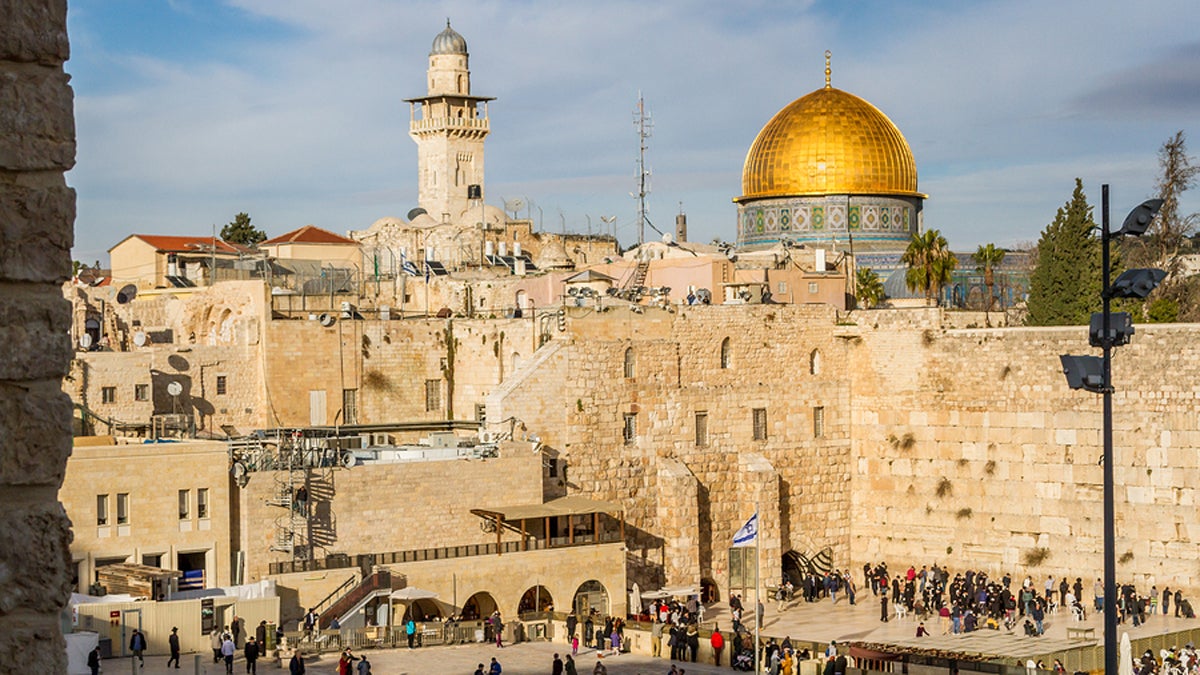Fear and the walls that divide us

Jerusalem's Western Wall (Big Stock)
This isn’t the first time that a particular group was perceived as a threat to “our way of life.” In the 1940s, America refused to grant asylum to Jews fleeing the Holocaust. Now, presidential candidates are assuring voters that they will not just stop the trickle of Syrian refugees, but they will deny entry to all Muslims. Until we can “figure out what is going on.”
Growing up in the burbs, I had no contact with Muslims or reason to fear them. On the news, Egypt’s president Nasser screamed “Death to the Jews!” I didn’t take it personally. His rants were aimed at Israel. Not Wynnewood.
How did I meet my first Muslim? In Israel, of course. I spent a summer there on a Temple University Study Abroad program for the purpose of raising my failing grade in conversational Hebrew and to put an ocean between myself and my broken heart. My first (of many) True Loves had just short-circuited and I needed a drastic change. What could be more drastic than plunking myself down in the Middle East?
Hebrew University was supposed to provide housing in their dorms in West Jerusalem. Someone fell asleep at the falafel and housed us 25 students in an Arab hotel in East Jerusalem. Then, as now, East Jerusalem was tinder box. Israeli soldiers nervously patrolled the streets. There was a quarantine. At dusk, shops closed with heavy metal grates. The streets were deserted.
Meanwhile, the all-male hotel staff eyed us with suspicion and disbelief. Arab women do not prance around in halter tops and shorts. Nineteen-year-old Americans do. Not too long after arriving, a female student from Ohio asked if I would go on a “double date” with her. The money changer on the corner, a Muslim in his early twenties, wanted to take her out. She accepted on the condition that her “friend” could come along.
Dating Palestinians wasn’t in the brochure. If anything, I had anticipated getting private language lessons from one of the almond-eyed Israeli boys I saw on the campus of Hebrew University. So why did I agree to go out with a Muslim stranger in Occupied Jerusalem? Perhaps the aspiring journalist in me was hunting for material. But I honestly think it had more to do with the endless kvetching of the girl from Ohio.
His name was Fathi. It means “victorious.” He was a tall, lanky Palestinian medical student with a gentle, quiet manner. I had the feeling this was a “first” for both of us. I was curious about his life under the occupation. He had a more explicit curiosity.
“I want to see the ocean,” he said. Fathi explained that Palestinians are not permitted to drive the main road between Jerusalem and Tel Aviv. He and the money changer had never seen the Mediterranean Sea. If we were willing to drive in their car with them, it would somehow be ok. I didn’t overthink the potential risks. Suppose we were stopped along the way? Or they had a trunk full of explosives? Those questions never crossed my mind. I was too busy thinking, “Will he kiss me?”
Yes, he did. On the beach of Tel Aviv. Under a zillion stars. Negotiations between the Palestinians and Israel should only go this well. I remember his hands. They were elongated and elegant. And his voice. Soft and deep.
Fathi wanted to see me again. I was afraid. Not of him, but of us. Sure, we were just having a romantic summer fling, but beneath the surface, the entire Middle East conflict was on a low boil. I was a Jew, albeit a secular one who ate pork. I also was from America, a nation viewed as an enemy of the Palestinian people. What did Fathi really think of me? Muslim girls didn’t go off with strangers and make out on the beach at night. I worried that I was little more than an adjunct to the anatomy classes he was taking in med school. Bottom line? I was afraid I would get hurt.
Over the years, as Mideast peace talks have repeatedly crashed and burned, I have often thought of Fathi. His intelligence. His quiet demeanor. I regret the fears that kept me from giving both of us a chance. We may have been as ill-fated as Romeo and Juliet. Under the best of circumstances, it wouldn’t have lasted past August. But perhaps we could have lowered the walls between one Muslim and one Jew just long enough to see the humanity in each other. Rather than adding another stone.
WHYY is your source for fact-based, in-depth journalism and information. As a nonprofit organization, we rely on financial support from readers like you. Please give today.

